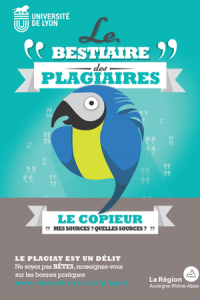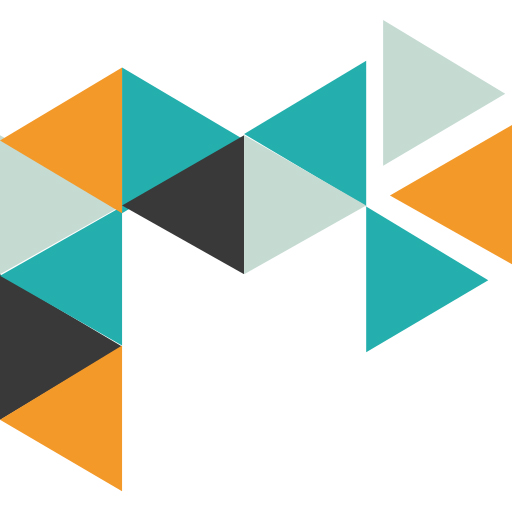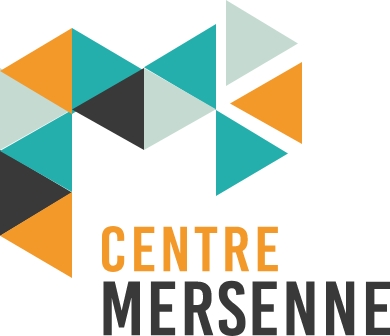Definition
The Centre National de Ressources Textuelles et Lexicales gives a fairly complete definition of plagiarism: “Borrowing from an original work, and, by metonymy, from its author, elements or fragments of which one abusively claims authorship by reproducing them, with more or less fidelity, in a work that one presents as personal. Synonyms: to copy, to plunder, to pirate“
Plagiarism is therefore a theft, of text, of ideas… accompanied by an infringement. It concerns any intellectual work: texts, of course, but also images, works of art, software, etc.
Different types of plagiarism
When you think about plagiarism, you immediately imagine the reproduction of a text without citing the references. However, there are many more variations on plagiarism than you might think. The Université de Lyon gives some examples in its bestiary.

Borrowing without citing the original work
This is the type of plagiarism that people usually think of first. Someone borrows a text or a fragment of text from an author and fails to cite the original work. Copying texts can take different forms: exact copying, copying of extracts, paraphrasing, use of synonyms, etc. On this subject, The Plagiarism Spectrum presents examples of 10 types of plagiarism by comparing plagiarists’ texts with the original works, thus identifying the diversity of the problem and the difficulty of avoiding and recognising it.
Borrowing may concern the text itself but also the ideas. Thus, taking ideas without attributing them to their creator is plagiarism, as well as taking the structure of a work. This is why the pure and simple paraphrase of a work is considered an infringement.
Moreover, plagiarism does not stop at language. Translating a text without quoting the original work is also plagiarism. In case of translation, the references of the original text and the name of the translator should be indicated. In addition, a publisher has rights to the published text. In the case of a translation project, you should not forget to ask for his agreement.
Aggregation of cited texts
Another form of plagiarism, more often ignored, is the aggregation of cited texts without any personal additions, the whole being of course signed by the plagiarist as an original text.
Self-plagiarism
Presenting the same text several times in different courses, conferences, journals, etc. is considered plagiarism, even if it is not, in this case, theft from others. It is therefore more a question of research ethics: self-plagiarism denies the reader access to the source text and presents reused data as original.
False and misquoted quotes
Another form of plagiarism is the use of false or misleading quotes. Once again, the question of research ethics arises: this is more a question of falsifying data than of counterfeiting. The author of the text supports his thinking with evidence that does not exist or is twisted to serve his own ideas.
Consequences
Intellectual
Plagiarism is counterfeiting, even fraud. In the case of scientific publishing, if plagiarism is discovered in a published article, the journal has the possibility to retract an article. This withdrawal is accompanied by a withdrawal notice explaining the reasons for the journal’s decision.
Plagiarism thus calls into question the ethics of research and discredits not only the plagiarist, but also the entire team that participated in the development of the offending research.
Furthermore, as Yaroslav Pigenet points out in the article Fraude : mais que fait la recherche ? : from a strictly scientific point of view, the worst consequence of fraud is the uncertainty and doubt it casts on the body of knowledge acquired through research. A doubt whose repercussions are not only epistemological, but also affect society as a whole.. Thus, plagiarism and fraud are seen as serious dangers in a society where science is increasingly questioned.
Economical
Plagiarism also has economic consequences. Since it is becoming easier and easier to copy texts with a click of the mouse, to edit images or videos with a simple free application on one’s phone… institutions are obliged to equip themselves with expensive anti-plagiarism software.
Moreover, in cases of suspected plagiarism, universities incur lawyers’ fees, organise commissions, which represent a significant cost in time and money.
Sanctions
In case of proven infringement, the plagiarist risks academic and penal sanctions.
Academic sanctions
Universities have adopted anti-plagiarism guidelines. These define plagiarism and the sanctions applied. These can range from a reprimand to permanent exclusion depending on the seriousness of the fraud. The institution may also decide to invalidate the award of a degree.
The Code de l’Éducation, notably in articles R811-10 to R811-42, provides a framework for disciplinary procedures in public higher education institutions.
Criminal sanctions
Plagiarism is punishable as an infringement under the Code de la propriété intellectuelle. Articles L335-2 and L335-3 of the latter state that, in France, counterfeiting of works published in France or abroad is punishable by three years’ imprisonment and a fine of 300,000 euros.
Test your knowledge!
The Quebec University Network offers a quiz to test your knowledge of plagiarism: http://ptc.uquebec.ca/pdci/eviter-le-plagiat
On the same page, the site proposes 3 scenarios: a student must write an article on such and such a subject, he has found such and such a source, he has written this… is it plagiarism? If so, what should they do to avoid plagiarism? etc…
The University of Angers also offers a quiz: https://www.univ-angers.fr/fr/vous-etes/etudiant-e/examens/plagiat/quizz.html
For more information
Directory of anti-plagiarism tools:https://cursus.edu/fr/15876/repertoire-des-outils-anti-plagiat-prevention-et-detection
The Plagiarism Spectrum: Instructor Insights into the 10 Types of Plagiarism : https://www.ed.ac.uk/files/atoms/files/10-types-of-plagiarism.pdf
Case study on the Responsable website of the University of Geneva: https://www.responsable-unige.ch/top/les-cas-ecole/duplicate-of-merci-le-web.html
The website of IRAFPA, Institute for Research and Action on Academic Fraud and Plagiarism, and in particular the Quick cases : https://irafpa.org/methodes/notre-methode-des-cas/mini-cas-contextuels/#
A study of the risks involved in plagiarism: https://www.compilatio.net/blog/plagiat-etudes-risques
Brigitte Simonnot. Le plagiat universitaire,seulement une question d’éthique ? https://journals.openedition.org/questionsdecommunication/9304
COMETS. Réflexion éthique sur le plagiat dans la recherche scientifique : https://comite-ethique.cnrs.fr/avis-du-comets-reflexion-ethique-sur-le-plagiat-dans-la-recherche-scientifique/




